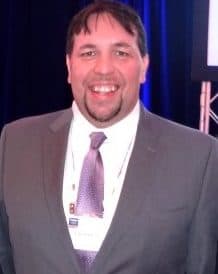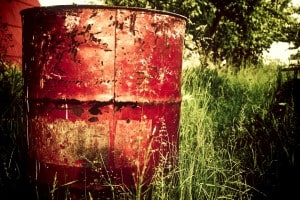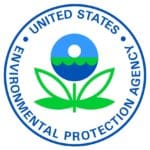 I’m Gavin P. Smith, founder of Civilian Exposure. Acute Leukemia (AML) took the life of my father, Robert Ray “Bob” Smith on June 11, 2008. My father was a loyal civilian DOD employee aboard Camp Lejeune, NC for 25 years (1973-1998).
I’m Gavin P. Smith, founder of Civilian Exposure. Acute Leukemia (AML) took the life of my father, Robert Ray “Bob” Smith on June 11, 2008. My father was a loyal civilian DOD employee aboard Camp Lejeune, NC for 25 years (1973-1998).
For several years after his passing, I believed that his AML was simply a natural occurrence of bad luck. Recently, however, I began to learn about contamination issues aboard Camp Lejeune, NC. I started uncovering an ongoing fight for legislation and corrective measures by a handful of folks affected by base contamination over the past decades. After reaching out to them in 2013, we began sharing information and research with each other.
One of the biggest spots for contamination was Hadnot Point, an area that included the Base Maintenance section. I began noticing that my father’s building number appeared frequently in research (Bldg 1202 – Base Maintenance). Startled by this find, I began combing through available evidence, newly released research and a mountain of my father’s health records. The picture quickly crystallized and the connection became all too clear. With no prior family history, my father’s leukemia was not natural at all. My father’s leukemia and secondary health issues originated from spending 25 years either ingesting or absorbing toxic contaminants existing in the soil vapor and water on the base.
 The truth is coming out slowly but surely. Over four decades of benzene, TCE, PCE, DCE and vinyl chloride contaminated base water supplies and soil at Camp Lejeune in Jacksonville, NC.
The truth is coming out slowly but surely. Over four decades of benzene, TCE, PCE, DCE and vinyl chloride contaminated base water supplies and soil at Camp Lejeune in Jacksonville, NC.
Note that I said “slowly but surely”. In my own awakening to this issue, I uncovered several key problems. The majority of military and civilian personnel: 1) do not know of the contamination problem, 2) are not aware of ongoing research, and 3) do not have guidance to know if their health problems are connected. In addition, media attention to this problem has been tepid at best. As a media and business professional of almost 20 years, I knew my expertise could help.
In 2013, I took action and launched Civilian Exposure. In 2014 and 2015, I also served on the CDC/ATSDR Camp Lejeune Community Assistance Panel, where I collaborated with members of the CDC, ATSDR, USMC, US Navy, DOD, EPA and VA to scrutinize and publicize research studies.
This mission is very personal to me. If I can help others become aware of their exposure and if I can help to create safer environments for veterans, workers and families aboard all military installations, then perhaps I can spare at least one family from having to endure what mine has endured.
 By the way, Camp Lejeune is just the flagship that reflects a much larger mission. I continue to meet people daily that share stories of contamination at other bases. They, too, fight for justice. The sheer number of contaminated bases is eye-opening. Don’t take my word for it. See if yours is on this list of over 50 installations on the EPA Superfund List: http://www.civilianexposure.org/category/other-contaminated-military-sites/
By the way, Camp Lejeune is just the flagship that reflects a much larger mission. I continue to meet people daily that share stories of contamination at other bases. They, too, fight for justice. The sheer number of contaminated bases is eye-opening. Don’t take my word for it. See if yours is on this list of over 50 installations on the EPA Superfund List: http://www.civilianexposure.org/category/other-contaminated-military-sites/
Please help me in building awareness and assistance for victims of Camp Lejeune contamination and those exposed to all forms of toxic military contamination both at home and abroad. Help us educate all who were exposed so that they can seek the proper help and guidance required. Help ensure that all corrective legislation measures are explored and enacted to not only correct the past, but prevent future problems.
With help from supporters such as yourself, we will continue to expand our mission to promote the importance of taking care of those civilians and military members, spouses and children who selflessly play a role in serving the security of this great nation.
Together, we can make a difference in the lives of millions exposed to contamination aboard U.S. military installations across this country. There is much work to be done.
Thank you for your support.

